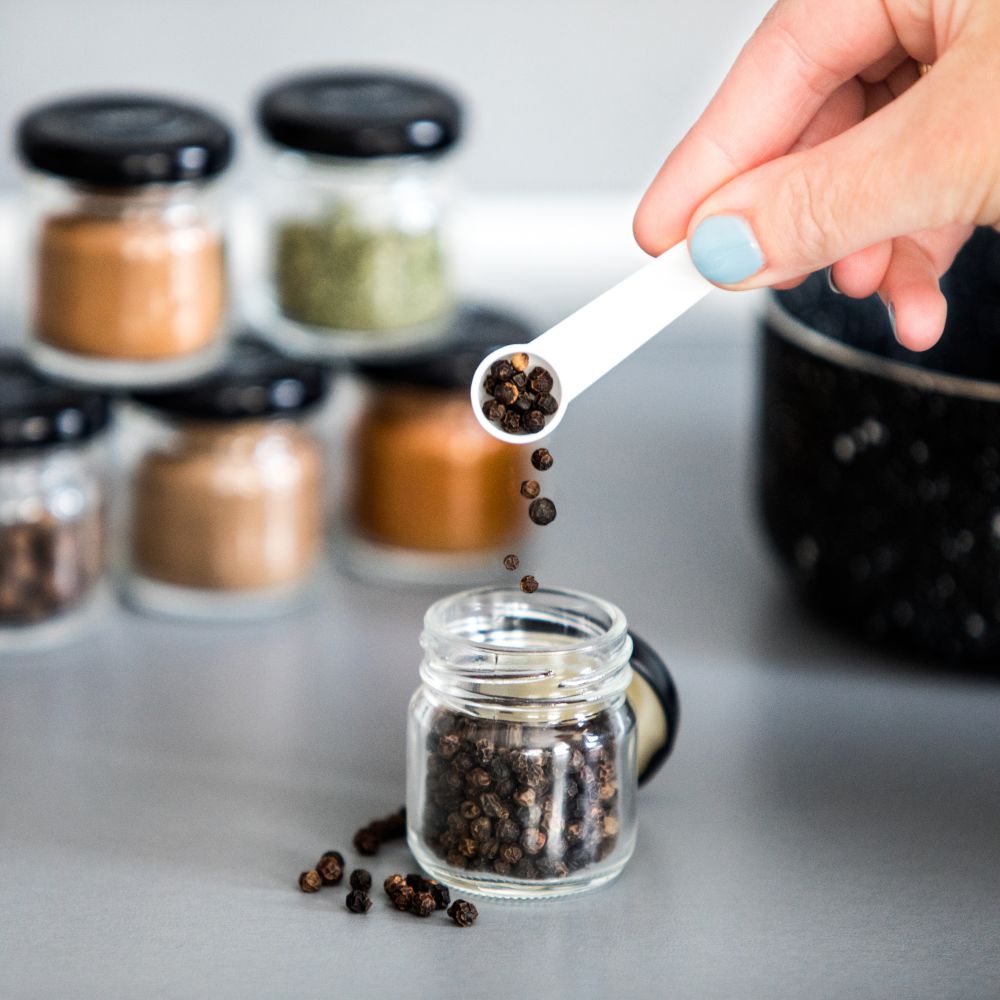
Food production requires exceptional accuracy. Every ingredient, even the smallest one, affects the final taste, texture, and shelf life of the product. That is why there is no room for chance in food facilities — measuring just a few grams too much or too little can result in significant differences in product quality. Measuring tools designed specifically for this sector therefore become a key instrument that supports not only recipe consistency but also food safety.
In everyday work within the food industry, time matters, yet standards and regulations cannot be forgotten. With properly selected measuring tools, we can work faster, without the need for repeated weighing, while maintaining full control over the quantity of ingredients used. It is precisely this accuracy that ensures the finished product reaching consumers meets all quality requirements.
The economic aspect also plays an important role. Proper measuring tools help reduce raw material losses, which, on the scale of large production plants, translates into significant savings. In practice, this means greater efficiency of production lines, reduced risk of complaints, and improved financial results.
Measuring tools for the food industry are also instruments that help maintain compliance with legal regulations and internal quality control procedures. Using certified measuring accessories provides assurance that every stage of production takes place under conditions consistent with applicable standards.
The food industry is one of the most demanding sectors of the economy. Products that end up on our tables must be completely safe, which is why the tools used in the production process are subject to particularly strict rules. Measuring tools used in food facilities should meet several key conditions, without which it is difficult to consider them suitable for a professional environment.
The primary requirement is the complete neutrality of the material from which the measuring tools are made. The material must be approved for contact with food and cannot react with ingredients, regardless of their form. Both dry and liquid products require appropriate protection to avoid altering their chemical and sensory properties.
Food facilities operate continuously, and every production batch requires sterile conditions. Measuring tools should be resistant to frequent washing at high temperatures, the action of detergents, and disinfectants. Only such properties allow for long-term use without worrying about the scale’s legibility or damage to the material’s structure.
Implementing proper measuring tools in production processes also supports quality management systems. HACCP requirements and EU food safety standards impose on producers the obligation to use accessories that meet specific standards. Thanks to this, both manufacturers and consumers can be certain that the entire production process is carried out in a fully controlled and safe manner.
In the food sector, there is no room for randomness. Each type of raw material requires a different approach to measuring, which is why choosing the right tool becomes a key element of daily work. Different types of measuring accessories work in different production conditions, and their proper selection ensures precision, consistency, and hygiene in technological processes.
In the food industry, precision is not everything. Increasingly, how we present our company to clients and business partners also matters. Personalized measuring tools combine two functions: practical measuring instruments and carriers of brand visual identity. This makes them a part of building a professional image and standing out from the competition.
A logo printed on measuring tools ensures the product is directly associated with the company. In food facilities, where these accessories are used daily, the logo remains constantly visible, strengthening brand awareness among employees and contractors. This type of subtle yet highly effective form of promotion works in the long term, reinforcing positive associations with the company.
Personalization is not limited to aesthetics. The printed scale on the walls can be adjusted to the client’s needs, making daily work easier and emphasizing an individual approach to business partners. In this way, the measuring tool is not only a practical accessory but also proof that the company invests in solutions dedicated to its customers.
Personalized measuring tools can also serve as original promotional gadgets. Unlike standard promotional materials, these are useful accessories that enter real circulation and support daily work. Clients and contractors, by using such products, reinforce the logo and company name in their memory, while the brand itself gains the image of a reliable and practical business partner.